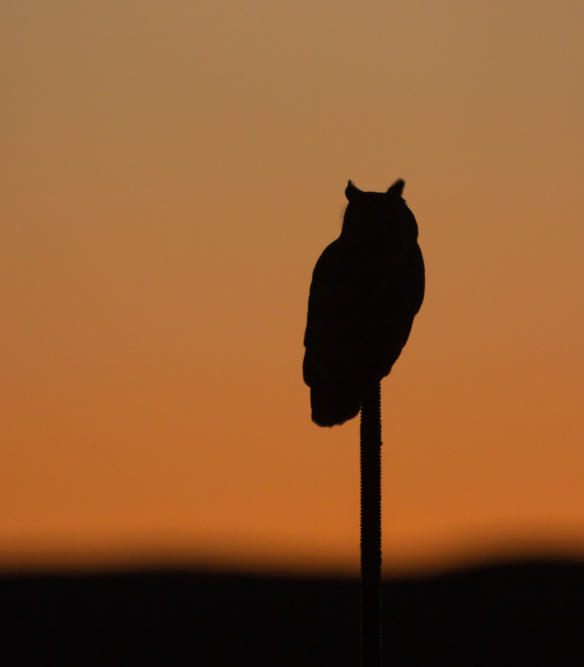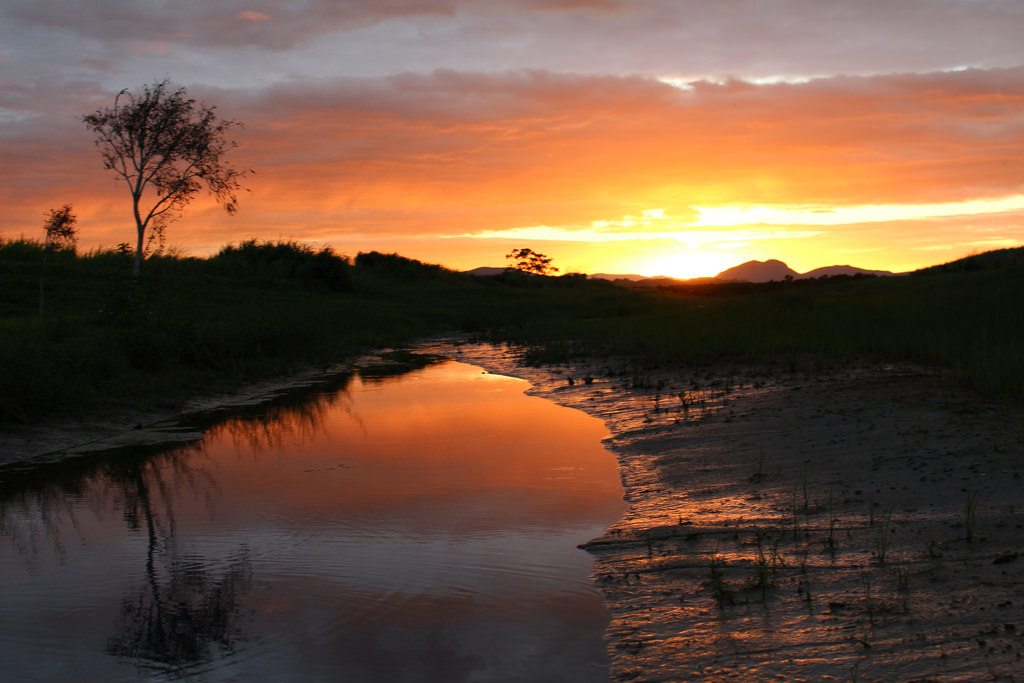Shortly after sunset in the narrow strip of land along the stream that runs through town, I could hear them calling to each other. I walked toward their hooting, with the intent to get close enough to see one of them.
When I reached a place where the owls haunting, echoing calls were the loudest, I stepped off the path and slowly walked 25 meters into a small clearing. I looked up to see a pair of owls almost directly overhead, a big one to my left and a smaller one to my right.
In the last light of day, the big one was facing the smaller one, and the smaller one was facing and looking down at me. They resumed their conversation, calling and answering from primordial depths.
The owls (parent and offspring?) didn’t fly away, and I felt honored to be there. Though the little wood is in the middle of town, it felt, as I watched and listened to the owls above my head, as if I’d entered the wilderness of an ancient time.

In that brief triangulation between the owls and the human being, I was partaking in a wordless, primeval dialogue between nature and humankind.
New Year’s Day is the point where many people make resolutions for the coming year. Though the beginning of a New Year is a good time to take stock of one’s life and look ahead, I’ve never understood New Year’s resolutions, and don’t think I’ve ever made one in my life.
Is there a distinction between resolution and intent? Or do we generally understand resolution incorrectly, and a redefinition is necessary in order to be able to realize our truest intents?
Normally, a resolution implies an idea, a goal, a plan, a choice involving will. I want to lose weight, become a better person, travel more or earn more money—whatever it is—and I set the goal ahead of myself and strive to reach it. As such, a resolution involves just our mind, our ego and our will.
Etymology can be instructive. The word resolution comes from the Latin, resolvere—to unloose, dissolve. That root meaning is pregnant with implications, since it refers to something antithetical to the way the word is usually used at this time of year, which has connotations of fixed goal and firm will.
There are other meanings to ‘resolution’ of course, such as, “the act or process of reducing to a simpler form; the act of solving; the act of determining; the formal expression of opinion or will by an official body.”
All of these definitions imply not just the expression of a desired goal, but action. Then why are New Year’s resolutions so famously short-lived? I submit it is precisely because we try to achieve our goals through the will, rather than from a deeper source, flowing from intent.
Intent involves our whole being. Intent is the hearts compass pointing us in the right direction and effortlessly taking a step in that direction.
At the nadir of winter and perhaps man, we have to each check our own moral compass often during the coming year, pause to read it, and see if we’re headed in the right direction. One can never be entirely sure one is moving in the right direction of course, but the act of questioning, without too much doubt, insures that we probably are. For the fact is, America, and humankind as a whole are still moving in the wrong direction.

Resolutions involve a gap between the present and the future. Intents have no gap, no division between the present and the future, between idea and action. Therefore the future of the individual and humanity flows from our deepest intent in the present.
With true intent, we simply take a step in the right direction. And another step, and another, without analysis and will. Before you realize it, you have changed. We never realize we’re changing when we are actually changing; only when we glance back in the rear-view mirror.
When nearly everyone you know is heading in the wrong direction, and humankind itself is heading in the wrong direction, it’s very hard to follow one’s own compass. But that is the only way out of the swamp of becoming into the meadow of being.
Martin LeFevre

